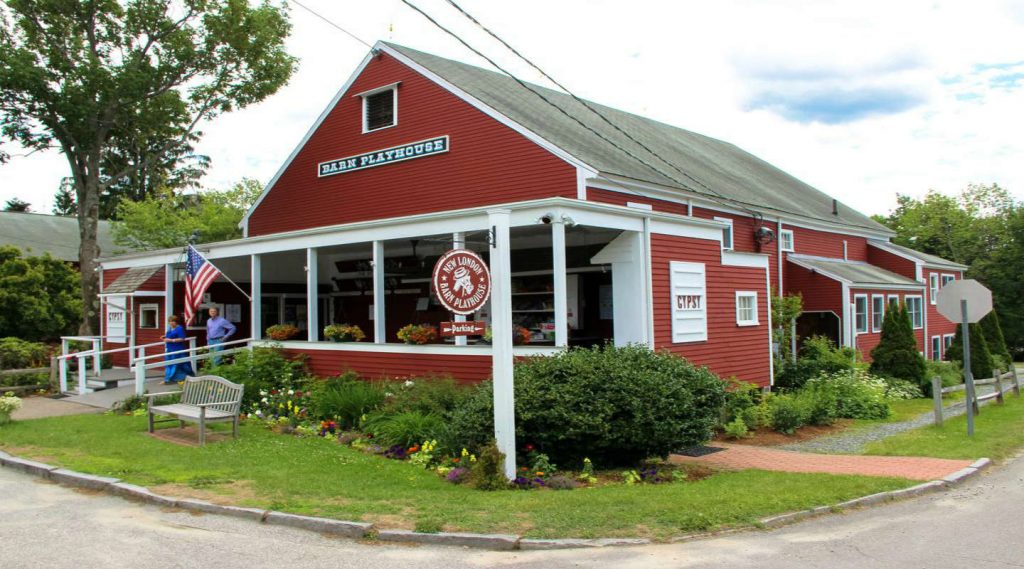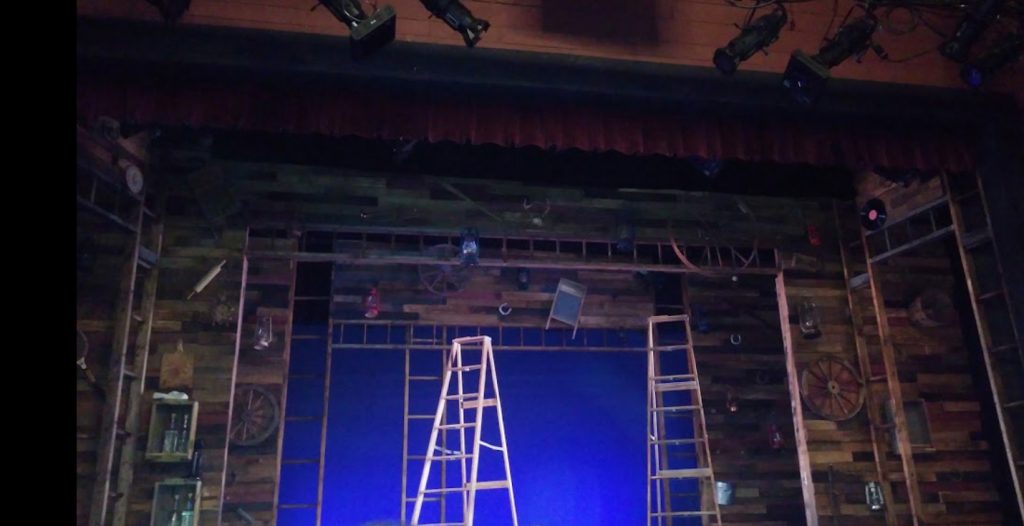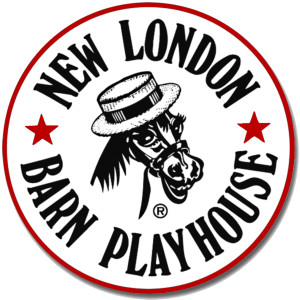
From A Brief History of the New London Barn, by Tom DeMille
The New London Barn Playhouse is the oldest, continuously operating Summer Stock theater in New Hampshire, a distinction which has gained it inclusion in the state’s Register of Historic Places.
In the summer of 1933, Mrs. Josephine Etter Holmes, Chair of the Department of Speech at Mount Holyoke College, came to New London with four female students and, with the assistance of colleagues at Colby Junior College and male actors drawn from the community, established the New London Players of New Hampshire. A disciple of the Little Theater Movement then sweeping the country, Mrs. Holmes aimed “to establish…a theater group presenting dramas of stimulating artistic & literary merit” and began pursuit of this high minded goal on July 11th at a sold out Whipple Memorial Hall. Three one act plays were presented that night. Tickets were 50 cents; pillows a nickel. Props, costumes and ushers were provided by the local citizenry. According to the New London News the show “aroused great enthusiasm…and set a new gauge for dramatic art in the region”.
That winter she purchased the Everett Barn on Main Street. Built around 1820, it sat empty as the town had long before absorbed most of the original farm for use as its hospital. Local carpenter Horace Stanley was hired to turn the hayloft into a balcony and add a box office window under the front stairs. Patrons sat on long wooden benches the evening of July 12, 1934 to see Milestones, a drama of industrial conflict in England during the late 19th and early 20th centuries. Not exactly an evening of song, dance and laughter but a wonderful evening was had by all. Dr. H. Leslie Sawyer, President of Colby Junior College, was the Barn’s first usher.
The advent of World War II brought significant change. Most Summer Stock theaters closed (many never to reopen) but the Barn Playhouse soldiered on with a slimmed down schedule. Mrs. Holmes sold the Playhouse in 1948 to N. Warren Weldon who downplayed experimental and classic plays in favor of “Old Chestnuts” like Life With Father and The Philadelphia Story. In typical Summer Stock fashion, each show would run for one week only with serious drama and mystery sprinkled among the many comedies.
In 1955, Norman Leger, a Nebraska native and graduate of the Neighborhood Playhouse in New York City, purchased a majority interest in the theater which he would guide for the next half century. The Playhouse that evolved under Norman had the feel of an old Judy Garland-Mickey Rooney movie. The dominant theme: “Hey kids, let’s put on a show”. He introduced musical comedy by producing Finian’s Rainbow the last week of the 1956 season and little by little the emphasis switched from the “Old Chestnuts” to the primarily musical comedy format of today. The physical plant underwent great changes with the addition of front and back porches and improvements to seating, stage and production areas.

The mission of the Playhouse also evolved over time with Norman stressing the education of young artists interested in pursuing a career in theater. Today, a typical Playhouse Company consists of a small cadre of theater professionals together with more than a score of participants in our Intern Program. Each year Interns, primarily college students majoring in theater, are selected after a careful casting process to take part in what is nothing less than Broadway Boot Camp. For fourteen weeks these young people eat, sleep and breathe theater while living together in the former Nurse’s Residence next to the Playhouse. They build sets, sew costumes, rehearse and perform, sometimes working on as many as four shows in various stages of production at the same time.




